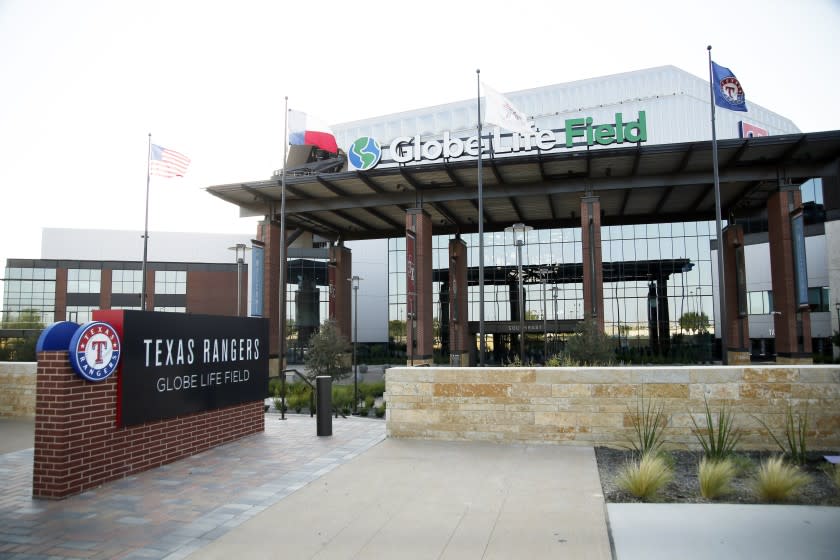World Series will have spectators in the stadium, but no check of their temperatures

When fans return to the ballpark for the World Series and National League Championship Series at Globe Life Field in Arlington, Texas, they will not be subject to a temperature check.
Such screenings have become common nationwide, in attempts to keep people infected with the coronavirus from entering facilities where they might infect others. In its health and safety protocols, Major League Baseball requires temperature checks for players, coaches, team staffers, media members and stadium cleaning crews. The latter two groups are kept away from players; the MLB announcement of ticket sales said no seats would be available "within 20 feet of where a player can be located on the field, in the dugouts or in the bullpen.”
As the host Texas Rangers put tickets on public sale Tuesday for the World Series and NLCS, they noted that fans could buy in groups of only four, would be seated at least six feet from other groups, and would have to wear masks when not eating or drinking. The Rangers limited sales to 11,500 tickets per game; the new stadium seats 40,300.
However, MLB and the Rangers said there would be no temperature checks. The Rangers said “public health authorities recommend self-screening before you enter public places,” and MLB said fans exhibiting symptoms could be denied entry.
“After reviewing the available technology and consulting with local public health authorities and outside infectious disease experts, MLB and the Rangers made a collective decision not to take the temperatures of fans entering the ballpark,” the league said in a statement. “This decision was based on a number of factors, including the reliability of available technology and the close contact that temperature checks would require.”
The NFL’s Dallas Cowboys play in a stadium across the parking lot from the Rangers’ ballpark. The Cowboys do not check temperatures. They have welcomed more than 20,000 fans to each of their two home games so far this season.
The scientific community has debated the value of temperature checks. Some people infected with COVID-19 show no symptoms, and some that do show symptoms do not have a fever. And, while detection of a fever could keep an infected person out of a venue, it would not necessarily mean the fever was caused by COVID-19.
In an article on the health website Stat, researchers suggested that a scratch-and-sniff test might be more valuable than a temperature check in detecting COVID-19. Loss of smell “produces a clearer signal and may therefore be a better Covid-catching net than fever,” author Sharon Begley wrote in reviewing a Mayo Clinic study.
James Hamblin, a lecturer at the Yale School of Public Health, wrote in the Atlantic that large-scale fever screenings may do more to provide a crowd with the appearance of reassurance than to detect the virus.
“As logical as mass temperature checks may seem,” he wrote, “the practice hasn’t clearly been shown to help contain the coronavirus.”
This story originally appeared in Los Angeles Times.


